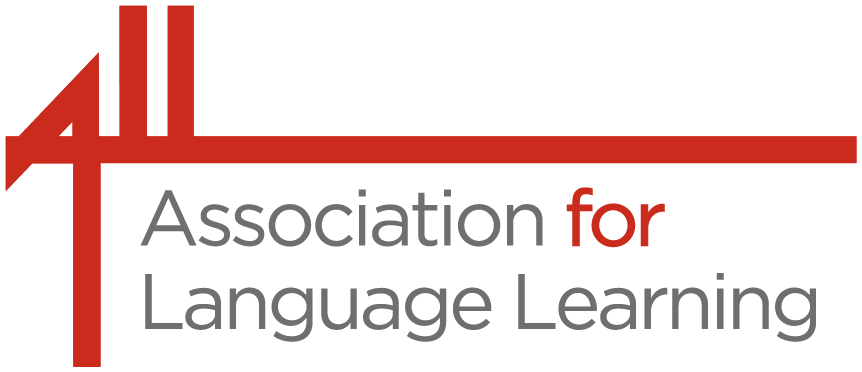Supplementary schools as spaces of hope for a socially just world
Terry Lamb
Linguistic diversity and social injustice
In recent years, there has been a new impetus to the on-going efforts to address social injustices in society, with schools engaging in debates and actions similar to those in the early 1980s when I was a young teacher in London. Indeed, universities too are ‘decolonising’ their curricula, pedagogies and structures. Nevertheless, the stark social injustices and inequalities experienced by many of our urban language communities, which are often marginalised and excluded in society, tend to go unacknowledged.
Monolingualising multilingualism
Numerous reports have been published that depict the UK as a linguistic desert – for example, one report for UK Trade and Investment1 stated that “the UK seems to be linguistically backwards”. Motivation for language learning in schools is undoubtedly a problem, but, when I read headlines such as “Britain’s dwindling language skills are a disaster for the country and needs action”2, I ask myself which British people and which languages these headlines are referring to. Certainly not the many multilingual citizens we find in our urban neighbourhoods and schools. The message is that, unlike languages perceived as high status, the languages that they speak, often languages from Africa, South Asia, or Eastern Europe, are irrelevant and therefore excluded. Rather than being valued, research has demonstrated that these languages are perceived merely as obstacles to English3. In other words, we are monolingualizing multilingualism.
This paradox has also been raised by the British Academy. After arguing the need to develop language skills in the UK, they released a report, which recognised that “not enough is done to encourage or develop the skills of native or heritage speakers at the school level”4. Yet the first National Languages Strategy (NLS) for England and Wales5, only eleven years earlier, had led to wide-ranging interventions promoting the teaching and accreditation of community languages. These included Asset Languages, which offered accreditation of learning in 25 languages, including the first ever accreditation for Somali and Yoruba, the Our Languages project, which funded partnerships between mainstream and supplementary schools and the World Languages Project, which was commissioned to inform a government strategy aimed at broadening the range of languages, including community languages, offered in schools.
Since 2010, however, when the NLS was dismantled, the place of community languages in mainstream education and accreditation in those languages has been diminished. More broadly, the rhetoric of the ‘hostile environment’ and the Brexit referendum has led to an increase in aggressive and violent behaviour towards people speaking other languages in public spaces6.
“Spaces of hope”
Despite the unsustainability of top-down language policies in the UK, however, I see “spaces of hope”7 in multilingual cities, where communities themselves take bottom-up action to ensure that their languages and cultures are passed on to future generations, particularly through the creation of supplementary schools. Despite the constraints they face – loss of financial support over the years, challenges of finding premises, reliance on volunteers, lack of accreditation – many supplementary schools continue to provide safe spaces for children, in which use of their languages and expressions of culture is valued. In so doing, they nurture the identities of children which elsewhere may be marginalized. Their commitment is immense; right from the start of the Covid pandemic, many such schools developed online learning communities, finding creative ways of engaging learners8. (See also Iman Bahmadabani’s blog9 for the NRCSE for examples.) The Albanian school Shpresa (meaning ‘hope’) is typical of many communities, working tirelessly to raise the profile of its language and culture through engagement with national organisations and mainstream schools.
Conclusion
Sadly, much of the excellent work found in supplementary schools remains invisible outside the communities, despite their efforts to reach out. Yet, with increased visibility, they have enormous potential to change the mindsets of the monolingual British, encouraging a normalization of multilingualism, as Our Languages in the 2000s demonstrated. Developing opportunities for multilingual encounters in school and beyond offers hope for social justices – whilst at the same time encouraging everyone to be more open to learning languages.
References
1. Foreman-Peck, J. & Yi Wang (2014). The Costs to the UK of Language Deficiencies as a Barrier to UK Engagement in Exporting: A Report to UK Trade & Investment. Cardiff: Cardiff Business School.
2. The Independent: 4th March 2019
3. Lamb, T. (2015). Towards a plurilingual habitus: Engendering interlinguality in urban spaces. In: International Journal of Pedagogies and Learning,10(1), 151-165.
4. British Academy (2013). Lost for words: The need for languages in UK diplomacy and security. London: The British Academy.
5. Department for Education and Skills (2002). Languages for all: Languages for Life. London: DfES.
6. Rzepnikowska, A. (2019). Racism and xenophobia experienced by Polish migrants in the UK before and after Brexit vote. In: Journal of Ethnic and Migration Studies, 451), 61-77.
7. Harvey, David (2000). Spaces of hope. Edinburgh: Edinburgh University Press.
8. Lamb, T.E. (2020) ‘Supplementary schools as spaces of hope for a more inclusive world: Challenging exclusion and social injustice in multilingual London’, in Journal of Linguistics and Language Teaching, 10th Anniversary Issue, 11/2: 99-127 9. https://www.supplementaryeducation.org.uk/nrcse-creative-teaching-learning-young-people/why-creativity-matters/
